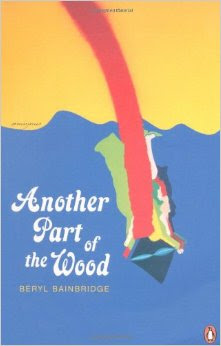Books I've read. Books that have had an impact on me. Books that didn't, but that many believe should have.
Tuesday, 16 August 2016
Radetzky March - Joseph Roth
Ah, Joseph Roth and the finis Austriae! Does it get any better than that? Well, in a way it does, considering that my favourite Roth novel (or rather a short story - The Legend of the Holy Drinker) is actually set in Paris...
Radetzky March is a wonderful novel (despite the fact that it took me a week to finish it because of the impending fatherhood and, erm, the Olympics...) and one of those books that I wish I could persuade my students to read.
Interestingly, Roth ultimately seems to love his characters despite the fact that more often than not these have to be bailed out by the Emperor, and that their careless actions lead directly or indirectly to the death of a number of people throughout the book (then again, the atmosphere surrounding the duel in the first half of the book reminded me of Ridley Scott's The Duellists so those deaths are justified!).
Speaking of the Emperor and his powers - the chapters directly related to his ageing are possibly the best-written of the book, but (speaking as a historian...) Roth seems to conveniently forget the fact that by 1914 the Austrian one was ultimately an empire hell bent on starting a war with Serbia (although not with the whole of Europe).
Another Part of the Wood - Beryl Bainbridge
And with this I, sadly, have exhausted my bookshelf's apparently never-ending supply of Bainbridge novels.
Another Part of the Wood is, yet again, an excellent read (although I should have thought twice about reading one of Bainbridge's books a couple of weeks before the birth of my first child, but hey...). Disquieting as always, the author gives an excellent portrayal of the various characters that are crammed in the rural huts and of their extremely dysfunctional relationships - it's kind of The Big Chill in Wales, with characters worried by even smaller issues (at least initially) and who have probably never liked each other anyway.
Much like with most of Bainbridge's novels, the reader knows from the start that tragedy is just around the corner - although this time it is presented in a very poetic way and doesn't have the gruesome end of that masterpiece that is Harriet Said...
The Crossing - Andrew Miller
I'm grateful to my old English teacher for introducing me to Golding, Orwell, Greene, Vonnegut and countless others.
I'm not so grateful to my old English teacher for introducing me to Andrew Miller.
Seriously, the book is an easy read, but it is also excruciatingly boring. And very implausible: sure, there are plenty of people who find it hard to relate to others, but Maud seems to me to be a tad bit excessive (much like her parents - who, with a daughter in ICU following a dreadful head injury, just drop by her hospital before vanishing into thin air, presumably to go home and watch telly).
And what is the solo crossing of the Atlantic meant to represent? Is it Maud looking for her true self, or the author showing off his nautical skills and knowledge of sailing terms (and yes, reading about mast and sterns is that exciting for someone who has never sailed).
Had she sunk it would have added a bit of depth to the novel, but luckily she survives, lands, meets the token noble savages who help her and are not helped in return, and then leaves in the night on a mysterious train - leaving behind her a trail of magic. And utter boredom.
Subscribe to:
Comments (Atom)


